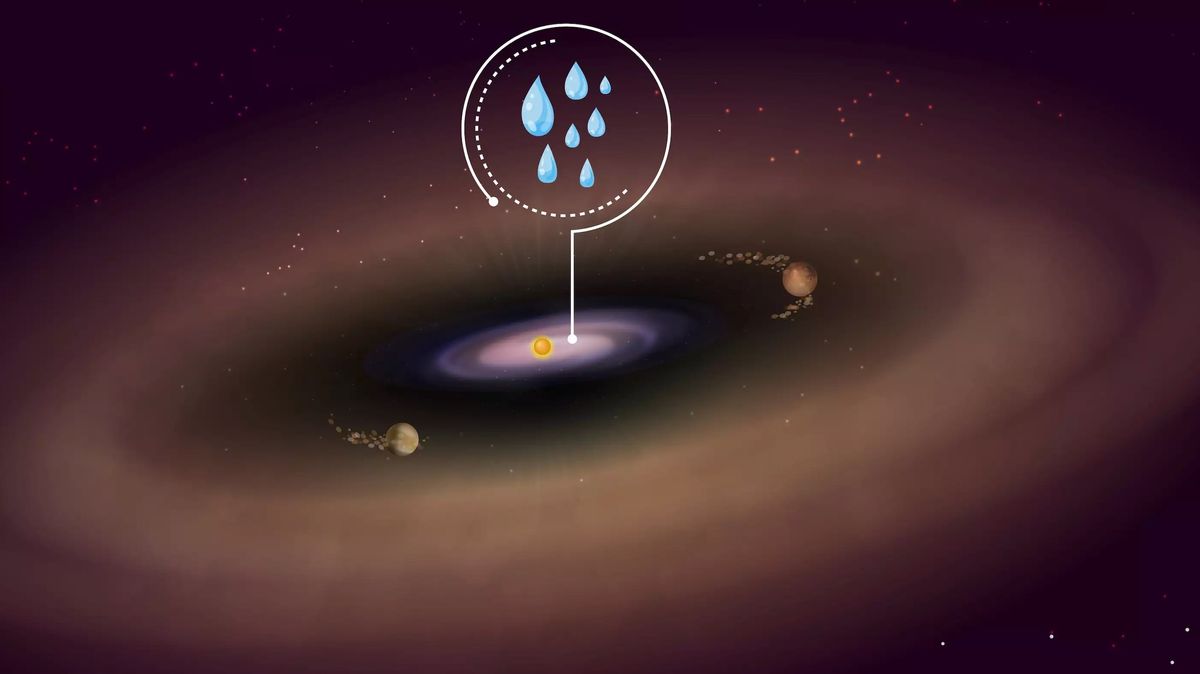James Webb Space Telescope spies water near center of planet-forming disk in cosmic 1st
By Charles Q. Choi published about 6 hours ago
Some rocky worlds may have lots of water from birth.
Astronomers have for the first time discovered that rocky alien worlds could possess large amounts of water from the moment they form, a new study finds.
Life is found virtually wherever there is water on Earth. As such, the search for potentially habitable exoplanets has mainly focused on hunting for the presence of water.
Previous research suggested that the newborn Earth got a lot of its water from water-bearing asteroids bombarding our young planet's surface after it formed. Now scientists may have discovered evidence that water could also serve as one of the initial ingredients of rocky planets available at birth.

Artist’s illustration of the PDS 70 system’s planet-forming disk. James Webb Space Telescope observations detected water in the inner disk, where normally terrestrial planets form. Two gas giant planets carved a wide gap in the disk made of gas and dust during their growth. (Image credit: MPIA)
In the new study, the researchers focused on the young star PDS 70, located about 370 light-years from Earth. About three-quarters the mass of the sun, PDS 70 is only about 5.4 million years old, compared to our sun's age of about 4.6 billion years.
More:
https://www.space.com/james-webb-space-telescope-water-center-protoplanetary-disk
